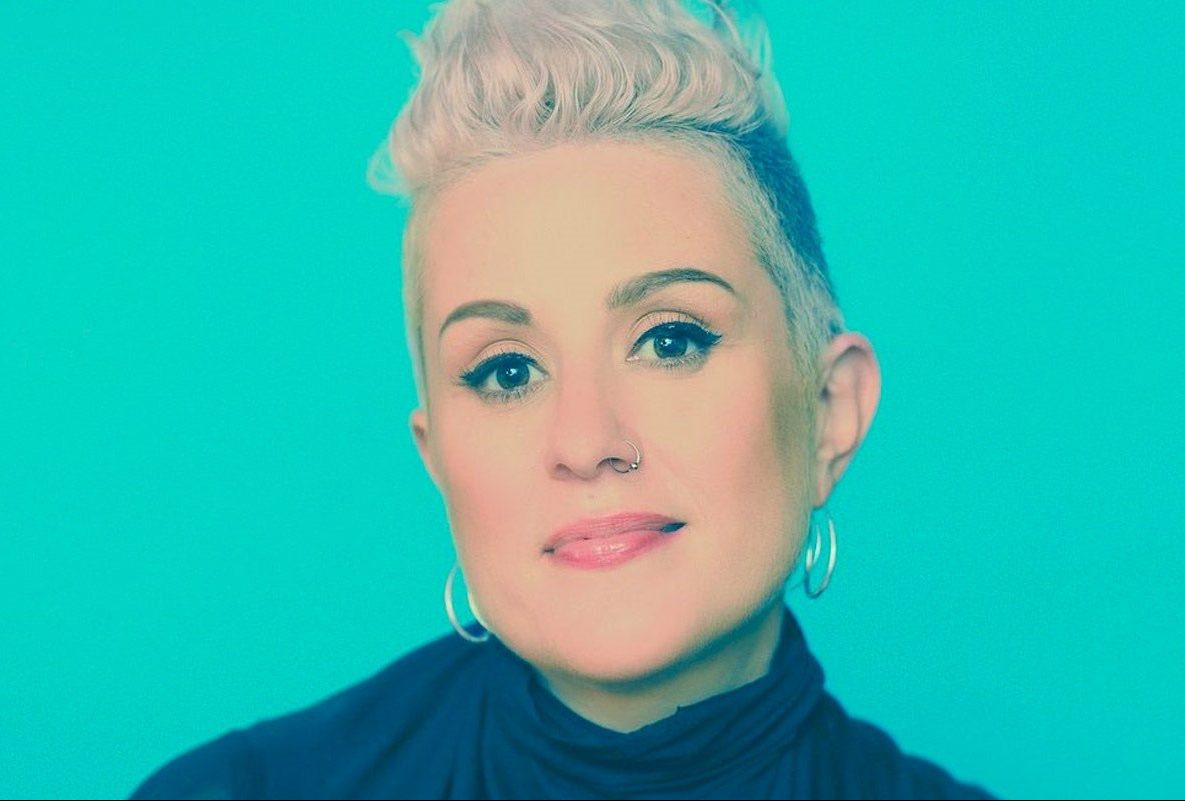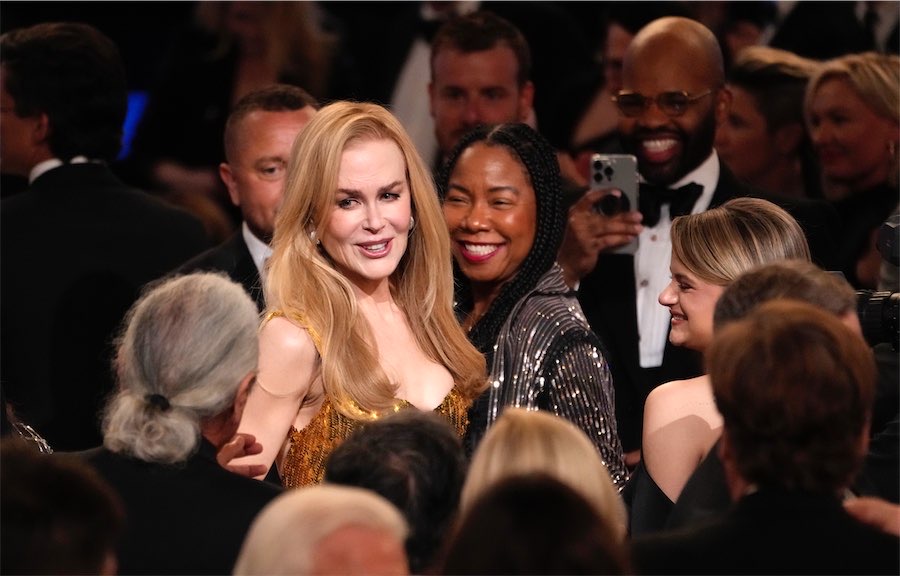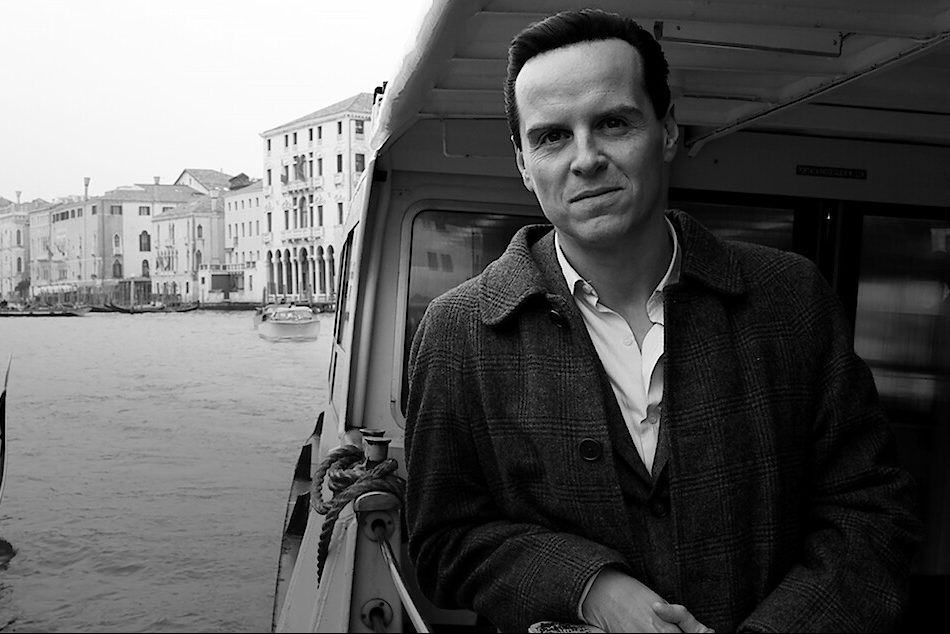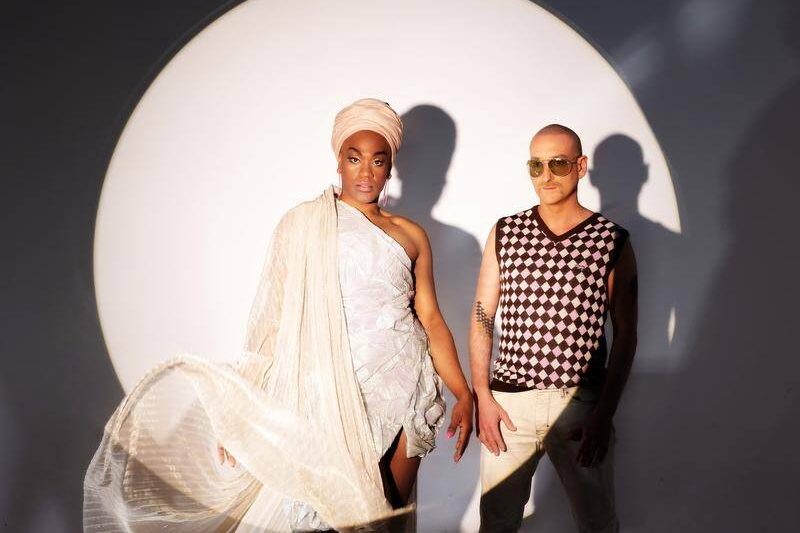
IT’S full steam ahead at the National Folk Festival offices in Mitchell when we catch up with managing director, Lynne O’Brien, to find out how they’re faring.
Actually, it’s the first morning that staff have been able to gather live since the lockdown.
Though beset by covid, which forced the cancellation of both the 2020 and 2021 events, a $900,000 boost from the federal government’s “Rise” funding is undoubtedly helping them get back on deck and ready for the Folk Festival to go ahead at Exhibition Park over Easter next year. Gathering at the office – a miracle in itself as O’Brien explains – are production manager Rebekka Ambroz, administration and stalls manager Lara Wood and administration and volunteers’ manager Sharmini Caldwell.
Missing, but only physically, is fireball artistic director Katie Noonan, cut off by covid since late July, but in touch daily – “The email traffic between us has been just phenomenal,” O’Brien says.
A former board member of the Folk Fest role with a long history of arts management experience including having worked with Sydney’s Gay and Lesbian Mardi Gras and now flanked by Noonan and Ambroz, O’Brien forms a triumvirate of what she calls “outspoken women.”
She prefers to cast a veil over some events of the last couple of years, which have seen a changeover of management and direction, along with the cancellations.
The same with the brouhaha aired several months ago on Facebook over the plan to have an artwork by Michael Leunig as the 2022 poster image, quickly dropped when some festival constituents pointed to the cartoonist’s track record of perceived misogynistic and anti-vaccination rhetoric.
“That was a board decision. We could not be bogged down by politics. We’ve moved on,” O’Brien says.
As they move on, they’re looking at a huge volunteer contingent, as the plan is to have 100 to 150 separate stalls.
“Volunteering is an enormous part of the folk festival,” she says.
“After working from home since lockdown, we also have to welcome on board new team members… other businesses have the same issues. It’s never easy putting together such a large event.”
To bring it off, they’ve been consulting with what they call “the NFF brains trust,” involving older folkies such as Warren Fahey and Rob Willis, performers Chloe and Jason Roweth and former festival director Pam Merrigan, and also a newer generation represented by artists such as folk-tragic Zev Aviv and spoken-word expert Jacqui Malins.
The festival won’t be exactly the same, but the public can be reassured that it will still be recognisable, “only there’ll be fewer and somewhat larger venues with physical distancing, more seating and more shade,” O’Brien says, including a 5000-capacity, big top pitched out on the racecourse or “arena”. In the remaining smaller venues, capacity will be regulated.
Last Easter in Queanbeyan, the “Good Folk” mini festival saw a sessions bar in a tent at the Campbell and George bowling club, showing the potential for more of the same, so there’ll be two well-spaced participatory bars where anyone can come to sing, dance and play.

With an all-female team at the top, it’s not surprising to learn that Noonan has been working with veteran folkies Dale Dengate and Kerith Power to launch the digital “First Australian Women’s Song Book” at the National.
It features songs by songwriters such as Joy McKean, Robyn Archer, Judy Small, Jeannie Lewis, Fay White, Sue Edmonds and Jan Cornall. Some of them – certainly Judy Small – have agreed to perform their own songs at the launch.
“We’ve gone back to our grassroots, connecting with as many as we can, but looking at the new environment and moving ahead,” O’Brien says.
“Katie [Noonan] is very strong on the participatory elements and we are hoping to have a massed choir in Canberra where anyone who wants to be involved can go to the website and join up.”
Mum’s the word right now about the full program as contracts are still being finalised, but our crystal ball reveals that Noonan successfully applied for support from the Australia Council to run two large scale events to open and close the festival.
The first will be a Good Friday concert led by Archie Roach, his last performance on Ngunnawal Country before his retirement, to be focused on his song “Let Love Rule”, performed with a chamber string orchestra made up of ANU students, mentors from the Canberra Symphony Orchestra, folk fiddlers and a choir to be conducted by Canberra composer Stephen Leek, better known for his classical work.
The second big gig, closing the festival on Easter Monday night, will focus on two folk songs, “Blackfella Whitefella” by the Warumpi Band and “Treaty” by Yothu Yindi, again supported by a massed community choir and a band of rockers/contemporary students from the ANU overseen by Will Kepa, young musos of Canberra and older folkies. Six weeks of weekly Saturday rehearsals at ANU begin in March.
Registrations for the Folk Family Choir to folkfestival.org.au/festival-info/choir; follow the festival at folkfestival.org.au
Who can be trusted?
In a world of spin and confusion, there’s never been a more important time to support independent journalism in Canberra.
If you trust our work online and want to enforce the power of independent voices, I invite you to make a small contribution.
Every dollar of support is invested back into our journalism to help keep citynews.com.au strong and free.
Thank you,
Ian Meikle, editor




Leave a Reply